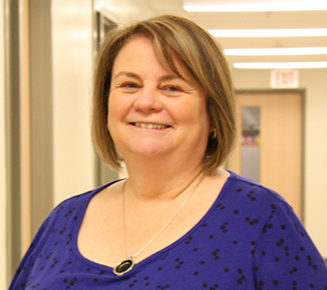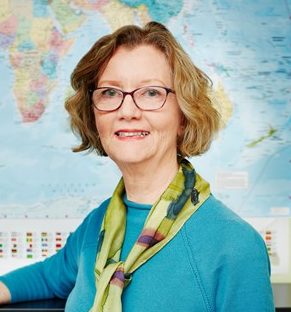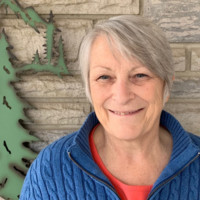Celebrated annually on May 12, International Nurses Day recognizes the work of nurses across the globe and the role they play in fulfilling health care needs.
This year’s theme, chosen by the International Council of Nurses (ICN), is “Nurses: A Voice to Lead – A vision for future health care.” This theme looks ahead at how the nursing profession will transform the future of health care.
At York University, in the Faculty of Health’s School of Nursing, faculty members have engaged in discussions about the toll of COVID-19 and how nurses can lead efforts across the globe to “build forward better.”
Three faculty members retiring from the School of Nursing, all pioneers in their respective fields, offer their insights on the future of health care.

Patricia Bradley, RN, PhD, CCNE
Professor Patricia Bradley’s career spans the important shift in nursing education from hospital schools to university settings. “As a student nurse,” Bradley explains, “I remember hearing and seeing things and thinking, ‘This just doesn’t seem right.’ And that’s when I thought, ‘I want to go further.’ I didn’t have a name for what I was seeing yet, but I wanted to do something about what was wrong with education and practice.”
Her own search for higher education involved travelling from Montreal to Winooski, Vt. to obtain a master of education, and then to Albany, N.Y. to obtain a master of science in nursing. She completed her master’s practicum alongside Dr. Anthony Fauci in the early days of the HIV-AIDS epidemic in the U.S. It was a lack of access to quality care observed early in her learning journey and stories she was privy to on the bus ride to and from clinical trials that informed her career. She began her doctorate in Detroit, where she had the privilege of taking courses with renowned nurse anthropologist Madeleine Leininger. She completed her PhD in nursing at the University of San Diego in California.
Bradley has since become an expert in curriculum design, a champion of narrative pedagogy and digital storytelling in education and research, and a recognized leader in practices that support internationally educated nurses (IENs). She first became attuned to the numerous hurdles faced by newcomers with professional degrees and the value of nursing knowledge to help address them when she was teaching internationally educated physicians to become nurses in San Diego.
“Teaching in a number of schools, and working across Canada and the U.S., you see various ways of doing things, each with different strengths and challenges. What I learned is that difference is not a deficit.”
Bradley’s strength is her ability to connect a love of curriculum with a passion for arts-based methods in an innovative “teaching-learning-being heard” approach that has been particularly effective for helping understand and address the diversity of needs of IEN students. She is now the Chair of the Canadian Association of Schools of Nursing Accreditation Board for IEN bridging programs.
Bradley became a IEN undergraduate program co-ordinator and well-respected colleague at York University through her collective efforts to address IEN concerns with feeling “voiceless and vulnerable.” Since the time of her arrival at York University in 2007, she has been the recipient of eight teaching awards and accrued over $10 million in research funding. She is also notably the current co-Chair of the Partners in Education and Integration of IENs conference.
“I will continue doing this supportive work, including working with the consortium, until there are more IENs represented in leadership positions across universities Canada.”
Bradley and her team recently submitted a new grant to further develop a four-university supported competency and concept-based curriculum that will enable IENs to receive learning opportunities while they transition into the workforce. From Bradley’s perspective, we have much to learn from IENs and more efforts are needed to build on their unique qualifications. “It would be too bad if we do not learn from their stories and if the knowledge they bring is lost.”
Beryl F. Pilkington, PhD
Professor Beryl F. Pilkington is a renowned nursing leader, scholar and advocate. Prior to entering academia in 1999, she had practised as a registered nurse for over 20 years. The three role models that led her to choose nursing were her mother, older sister and a cousin. “My family and community considered nursing to be a noble profession. Nurses were valued because they looked after people in need of care, and that’s what I wanted to do,” she says.
During her two decades at York University, Pilkington led research projects addressing the health and well-being of marginalized communities (such as perinatal loss, reproductive health and diabetes) and global health (such as refugee health in Dadaab, Kenya). Pilkington actively contributed to the development of nursing courses, and led the creation of the MScN program (launched in 2005) and proposal development of the PhD in Nursing program (launched in 2019). She has also collaborated in international nursing education development in both Kenya and Ghana.
Pilkington is an utmost esteemed colleague at all levels of the University. In addition to her significant scholarly and teaching contributions, her exemplary leadership qualities and generosity of spirit in service to the academia are evident in her numerous service contributions to York University. Humble by nature in recognizing her exemplary achievements, when asked which contributions she is most proud of, Pilkington refers to her students, as well as the development of the collaboration between York University and the School of Nursing & Midwifery at the University of Health & Allied Sciences in Ghana: the Advancing Scholarship & Capacity for Emerging Nursing Doctorates (ASCEND) program.
Pilkington has advanced the reputation of nursing and York University both locally and internationally. “As humanity grapples with the climate crisis and attendant global health challenges (e.g. pandemics and mass displacement), nursing can contribute to the attainment of the UN’s Sustainable Development Goals,” she says.
Pilkington will continue with her passion to advance nursing in retirement through the ASCEND program.


Shelley Walkerley, NP-PHC, PhD
Professor Shelley Walkerley has an outstanding history of practice, research and engagement in the profession of nursing. Walkerley has extensive clinical and academic expertise in acute and primary health care. This September will mark 50 years of active nursing for her.
Walkerley has deep roots in health care. Her mother was a highly regarded nurse and her family owned a nursing home, providing her with an early taste of the importance of caring for people. While nursing was not her original dream, she came to see how well it fit with her life and passions. She has not looked back on her decision to enter nursing and continues her clinical practice to this day.
She recalls how experiences as a team leader during the 1970s helped her recognize the appeal of further education. While pursuing her degree, she also became a primary health-care nurse practitioner, graduating in the late 1990s from York University. She has excelled as a nurse practitioner (NP), working in a variety of settings and combining her clinical expertise with research engagement. Walkerley completed her master’s degree and PhD so she could teach NP students and direct her expertise in supporting and developing the NP role in Ontario. There were challenges in the early days, including resistance to nurses taking on extended roles. Early advocates like Walkerley were key to the success of this provider. As she recounts, “We have taken NPs a lot further than we thought we could” and “the quality of care our graduates perform is a great accomplishment.”
Asked to reflect on the ICN’s theme, she replies, “Are we ready? This pandemic has created key opportunities that we don’t want to miss, and we must make sure nursing has a place at the table, meeting opportunities and challenges cohesively and collaboratively.”
Walkerley respects nurses’ knowledge and care and takes on those who view nurses as mere “technicians." For her, the real leaders in nursing are “people on the ground, getting things done.” Asked to share her wisdom, she encourages nurses to broaden their lens. “Reject a narrow view of nursing and don’t be held back by others’ perceptions.”
Walkerley will continue clinical work into her retirement, including a practice with essential workers during the pandemic and collaborating to develop online resources for chronic pain management.
